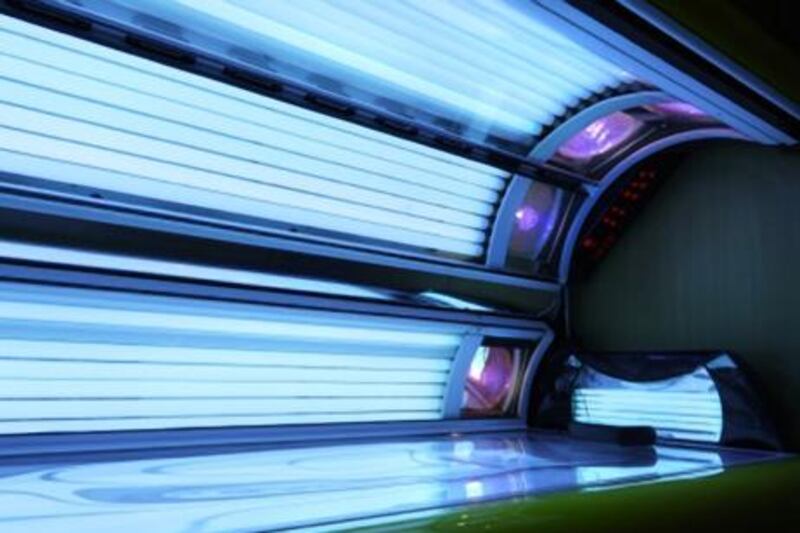DUBAI // People under the age of 18 are to be banned from visiting tanning salons in Dubai.
Dubai Municipality will also recommend a maximum number of sessions and raise awareness of the harm that can be caused by sunbeds and other tanning machines.
The authority plans to introduce guidelines by the end of the year to match international regulations.
“Our guidelines will look at best practices, the age of users, as well as restrict misuse,” said Redha Salman, director of the municipality’s public health and safety department.
Mr Salman said the department would also recommend tanning machines should not be used more than once a week.
“These are harmful for the skin and the body … we will look at raising awareness and recommend against excessive use of sunbeds,” he said.
Authorities regulate the health, hygiene and location of the salons, and ensure they have certificates from tanning-machine makers guaranteeing their products.
“The local order requires that if there is no UAE specifications they have to abide by best international standards,” Mr Salman said.
The UK and several US states have already imposed restrictions on the use of tanning beds by minors.
Abu Dhabi Municipality regulates sunbeds, but its public health director Khalifa Al Romaithi said that when licensing a beauty centre offering tanning, equipment was referred to the Health Authority – Abu Dhabi (Haad) for approval.
“This procedure is followed after several meetings with Haad on the issue in the last two years,” Mr Al Romaithi said. “Public health administration of Abu Dhabi Municipality took this matter as a serious health risk in the beauty centres if usage was not regulated.”
Mr Al Romaithi said the municipality was discussing draft regulations based on several international standards, including those of the European Commission and the Scientific Committee on Consumer Products.
Doctors in Dubai commended the new rules.
Dr Anwar Al Hammadi, consultant and head of dermatology at the Dubai Health Authority (DHA) and The City Hospital, said each month he saw about 24 cases of basal cell carcinoma and squamous cell carcinoma, the two most common forms of skin cancer caused by UV exposure.
Dr Al Hammadi said the ease with which tanning salons promoted their services was alarming.
“I was surprised when a teenage patient told me that the tanning salon she was going to offered her discounts on 15-session packages,” he said.
“I may propose to the DHA and the municipality to ban these promotions that mislead and encourage youngsters.”
The third and most serious form of cancer, melanoma, was less common in the Middle East because its people tend to have darker skin with higher levels of melanin pigments that shield them from the sun.
Tawam Hospital, the country’s primary oncology centre, treated two cases of melanoma in 2010 and three cases last year.
But experts say this does not mean Middle East people are immune.
“What people don’t understand is that tanning is the result of their body’s defence mechanism as their skin tries to protect itself from the harsh UV rays,” said Dr Hazem El Nasr, a dermatologist at Al Garhoud Private Hospital.
A study by the International Agency for Research on Cancer (IARC) of the World Health Organisation showed those who used sunbeds before the age of 30 increased their lifetime risk of melanoma by 75 per cent.
After the study, the IARC moved UV tanning beds to its highest cancer-risk classification, “carcinogenic to humans”.
The Sunbed Association in the UK disputes these findings, saying the study failed to remove those with skin type one – those with very pale skin who have the greatest genetic risk of melanoma.
The association said another study, published in the peer-reviewed journal Dermato-Endocrinology, reanalysed the same data in the IARC report but without skin type ones.
Its conclusion showed no statistically significant connection between sunbeds and melanoma in those who can develop suntans.
But doctors insist that tanning, whether in the sun or the sunbed, does more harm than good.
“People need to be happy with their skin,” said Dr Al Hammadi. “Those with dark skin try to get lighter and those with light skin tan trying to get darker.
"They are so concerned about their beauty; not aware that what they're doing now will make them pay a heavy price in the long run."
mismail@thenational.ae
pkannan@thenational.ae





